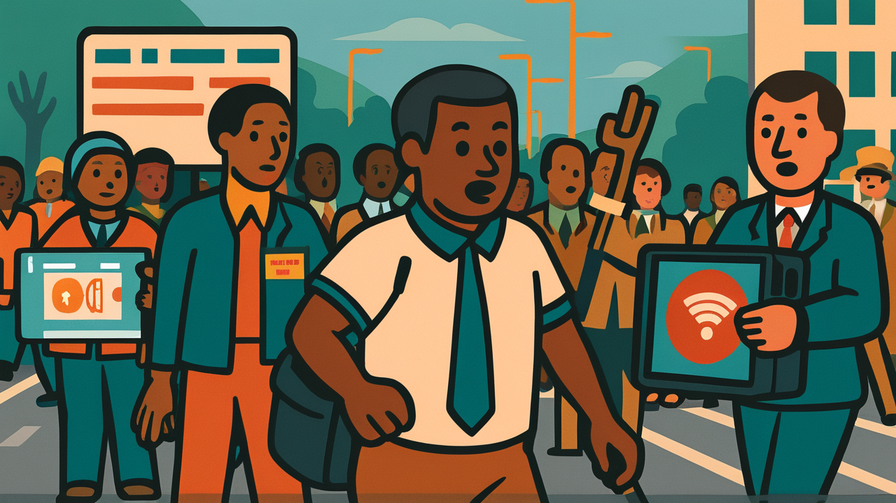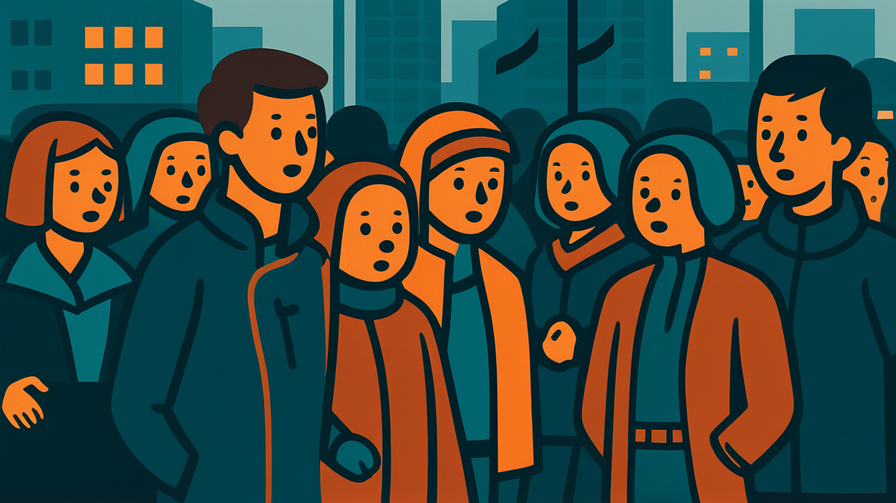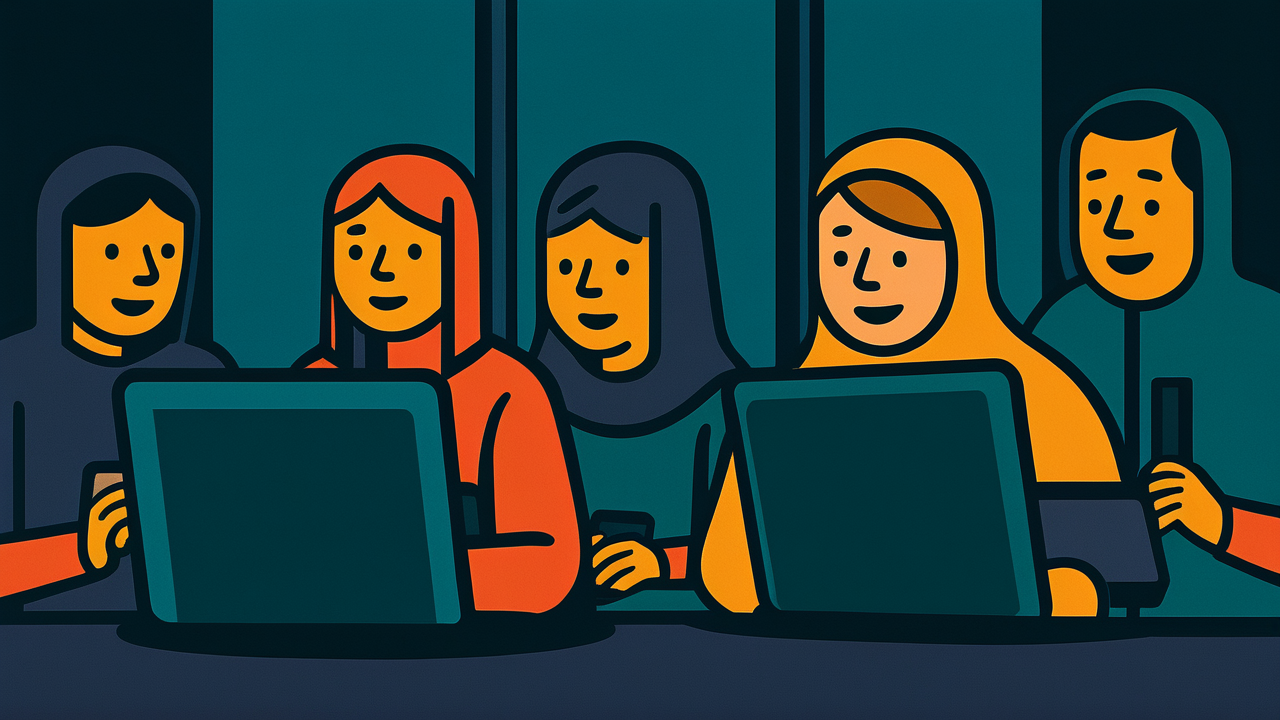[Disclaimer] This article is reconstructed based on information from external sources. Please verify the original source before referring to this content.
News Summary
The following content was published online. A translated summary is presented below. See the source for details.
Imagine waking up to find Instagram, TikTok, WhatsApp, and literally the entire internet just… gone. That’s exactly what happened to people in Togo during protests in June. When citizens took to the streets to voice their concerns about government policies, authorities didn’t just send in police – they flipped the internet kill switch. For several days, millions of people couldn’t access social media, news sites, or even basic messaging apps. It’s like being grounded from the internet, except it’s an entire country and the government is doing the grounding. This isn’t just about missing memes or Snapchat streaks – when governments cut internet access, people can’t call for help, share evidence of violence, or tell the world what’s happening. Journalists couldn’t report, families couldn’t check on each other, and businesses lost money. Togo joined a growing list of African countries using internet shutdowns as a weapon against their own people, turning a tool of connection into a tool of control.
Source: globalvoices
Our Commentary
Background and Context

Togo is a small West African country with about 8 million people – roughly the population of New York City. The country has been ruled by the same family for over 50 years, making it one of Africa’s longest-running political dynasties. When people get fed up and protest, the government often responds harshly. Internet shutdowns have become the new favorite tool of authoritarian governments worldwide. It’s way easier than arresting thousands of people – just flip a switch and boom, no one can organize, share videos of police violence, or tell the outside world what’s happening. Since 2016, African governments have shut down the internet over 200 times, costing the continent billions in lost business and productivity.
Expert Analysis
Digital rights experts call internet shutdowns a form of “collective punishment” that violates human rights. Think about it – in 2025, almost everything runs on the internet. No internet means no mobile money (how many Africans pay for things), no online classes, no way to run a business, and no access to emergency services. The UN has declared internet access a human right, but governments ignore this when they feel threatened. What’s really scary is how normalized this is becoming. Governments used to be embarrassed about censorship, but now they openly admit to shutdowns and even brag about their “internet kill switches.” This sets a dangerous precedent – if cutting off internet during protests becomes normal, what’s next?
Additional Data and Fact Reinforcement
The numbers are staggering: Internet shutdowns in Africa cost the continent $2.4 billion in 2022 alone, with Togo losing an estimated $8 million per day during blackouts. About 60% of Togo’s population uses the internet, and for many young people, it’s their main source of income through online businesses, freelancing, or content creation. During the June shutdowns, hospitals couldn’t access patient records stored in the cloud, students missed online exams, and families couldn’t receive money transfers from relatives abroad. The shutdowns lasted between 48-72 hours, but some services remained throttled for weeks. Interestingly, VPN usage in Togo spiked 3,400% as people desperately tried to circumvent the blocks.
Related News
Togo is far from alone. In 2024-2025, Sudan shut down internet for 3 weeks during protests, Uganda blocked social media during elections, and Iran regularly cuts access during demonstrations. Even democracies like India have used regional shutdowns. The technology for shutdowns is getting scarier too – some governments can now do “smart shutdowns” that only block certain apps or keywords while leaving others working. China sells this technology to other authoritarian governments. Meanwhile, tech companies face pressure to resist but often comply to keep operating in these countries. Satellite internet like Starlink offers hope but is expensive and often illegal in countries that want control.
Summary

Togo’s internet shutdown during June protests represents a growing global trend where governments weaponize digital infrastructure against their own citizens. What started as a tool for connection and freedom has become a switch that authoritarian leaders can flip to silence millions instantly. For young people who’ve grown up online, these shutdowns aren’t just inconvenient – they’re an attack on their basic way of life and their ability to speak truth to power.
Public Reaction
Togolese youth got creative during the shutdown, with some traveling to border areas to catch signals from neighboring countries. Underground networks using Bluetooth mesh apps spread information offline. International Togolese diaspora became the voice for those silenced at home, sharing updates received through sporadic connections. Memes about “going back to 1995” went viral once the internet returned. Local businesses shared horror stories of lost revenue. Students complained about missing assignment deadlines with “the government shut down the internet” not being accepted as an excuse by international universities. Human rights groups documented everything for future legal action. Tech-savvy protesters started teaching VPN workshops, preparing for next time.
Frequently Asked Questions
Q: How can a government just “turn off” the internet?
A: Governments control internet service providers (ISPs) through licenses. They can order ISPs to shut down or face losing their operating permits. Some countries have built “kill switches” into their internet infrastructure. It’s like how your parents can turn off your home WiFi, but for an entire country.
Q: Why don’t people just use VPNs or satellite internet?
A: VPNs only work if there’s some internet to tunnel through – during total shutdowns, there’s nothing to connect to. Satellite internet like Starlink works but is expensive ($600+ for equipment) and often illegal. Governments can detect and arrest people using unauthorized connections.
Q: Could this happen in my country?
A: While less likely in strong democracies, the infrastructure exists everywhere. Even the US has an “internet kill switch” law for national emergencies. The difference is checks and balances – in authoritarian countries, one person can decide to flip the switch. That’s why protecting democracy and digital rights matters everywhere.


